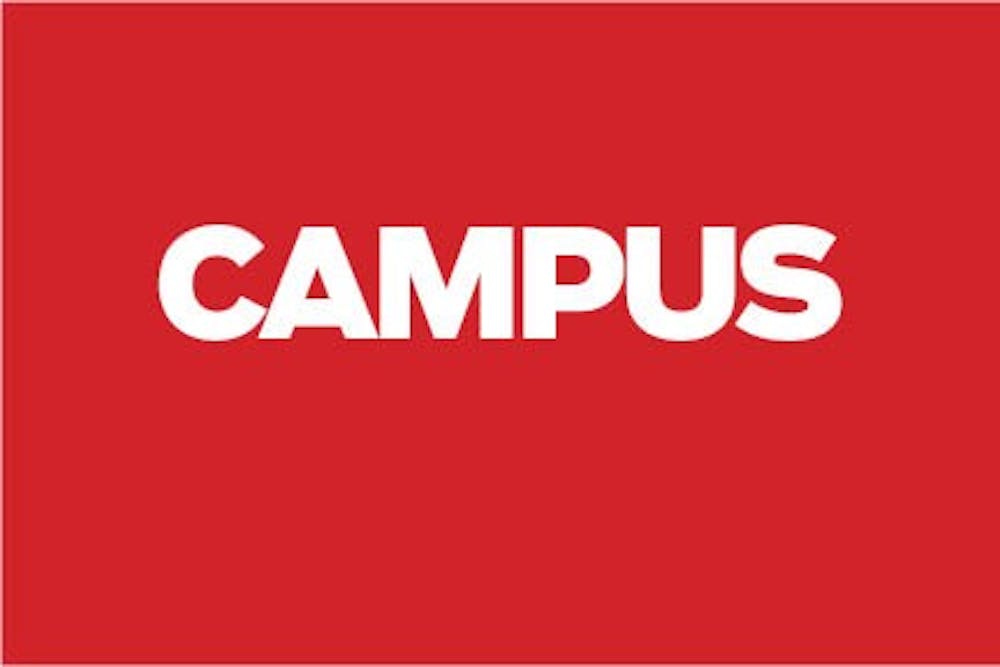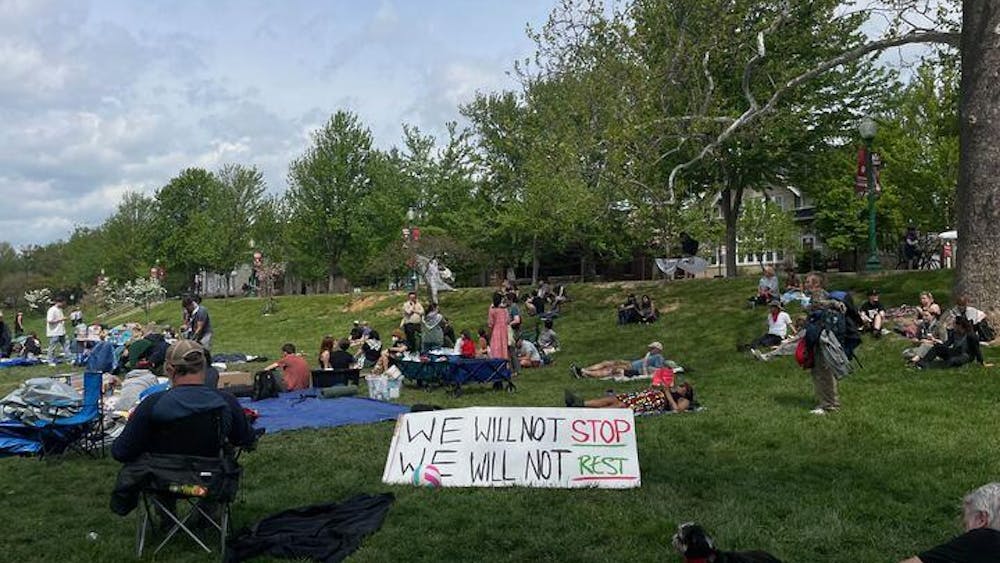The Poynter Center — a 43-year-old voice for ethics on IU’s campus — is expected to close its doors June 30 after the IU administration opted to nix its budget.
Two years after the Center’s absorption into the Media School, IU Provost Lauren Robel chose to halt its programming. The merger of the Center and the Media School proved to be a failure; two searches for a new director were unsuccessful. Yet Center advocates say the research center is still too valuable to lose.
“If we’re not doing something that has important consequences to the intellectual life of this University — indeed, I’ll be grandiose, of the state — let us go,” said David Smith, interim director of the Center.
Kenneth Pimple, an associate scholar who will have worked at the Center for 25 years on July 1, described Poynter as the campus’ conscience. The Center was founded in 1972. Newspaper publisher and IU alumnus Nelson Poynter permanently endowed it in 1978.
The Center is intended to facilitate conversations about ethics primarily among faculty through seminars, workshops, research and other initiatives. Pimple is one of two salaried employees who will lose their jobs because of the restructuring.
“The Poynter Center is the only IUB unit of which I know that is solely focused on right and wrong, helping and harming, fairness and selfishness,which is to say, ethics,” Pimple said.
Though the Poynter Center building on Third Street is expected to close, the permanent Poynter endowment will continue to support ethics on campus in some form in the future, though how it will do so is unclear, according to information provided by the Center.
The endowment was originally intended to support programming while funding from the University was intended to support staff and faculty salaries and benefits.
When Richard Miller resigned as director in 2013 after 10 years at the helm, Smith, who also served as director from 1983 to 2003, accepted the role of interim director.
James Shanahan, dean of the Media School, was tasked with conducting a search for a new leader who could bridge the divide between a multidisciplinary center for ethics and the new Media School.
An offer extended during Christmas break failed in negotiations, Smith said. When it became clear another search would not return a better result, Robel opted to halt programming.
“She pulled the plug,” Smith said.
Robel said in an email there will be a hiatus in the programming while the approach to the search is reconsidered. In the email, she reaffirmed a commitment to ethics on campus.
“The Center’s founding documentation was focused on the relationship between American institutions, ethics and media,” Robel wrote. “At this particular moment in our nation’s history, it is hard to think of a more important area of inquiry.”
Robel said she is working to ensure events such as the intercollegiate Ethics Bowl will have a home in the next year. The bowl is put on by the Association for Practical and Professional Ethics, which is also housed in the Poynter Center.
Smith said he believes Robel does not want to see the Center die. Though there is no evidence of the possibility, he said he hopes there is a chance funding could emerge in the next academic year for a relocated or reconstituted center.
The Center could be moved out of the Media School, Smith said. The unsuccessful searches for a new director proved how difficult it would be to find someone suitable for the role. The pool of people who do ethics in an interesting way and are interesting scholars of media is not very deep, he said.
Pimple said while the decision to integrate the Poynter Center into the Media School seemed strange to him at first, he adjusted to the merger. The Center has faced a series of challenges over the years — securing grant funding among them.
Pimple said he has written on average one grant proposal for each of his 25 years at the Center. He secured about a third of those grants, or about $50,000 per year.
The Office of the Vice Provost for Research budgeted no funds for Poynter in the 2015-16 year. The year before, the Center was allocated $99,179 — a figure that represented less than 1 percent of OVPR’s total budget.
“We are nickels and dimes,” Smith said.
In addition to the loss of the two full-time Poynter staff members and of the building on Third Street, APPE will also lose its home.
The multi-disciplinary organization has members in every state and in 18 countries. It works to advance scholarship, education and practice in ethics, according to its website.
Stuart Yoak, the association’s executive director, said IU has been a supportive host for more than 25 years and the association hopes to begin a new chapter of affiliation with IU beginning in July.
Still, Yoak said APPE could end up moving off campus or to a different university.
“It’s very much an open question,” Yoak said.
Yoak said few realize the prominence of the Poynter Center, nationally and internationally. In terms of the APPE, it is recognized as the home of an international ethics association. That prominence could go somewhere else if APPE chooses to move, he said.
Pimple said he thinks it’s foolish to restructure the Center without the institutional memory of long-time staff members.
“The one thing I can say with absolute certainty is that the lines of communication were very weak,” Pimple said. “Communication down to me has been very unreliable.”
Pimple, Smith and others attached to the Center continue to believe in Poynter’s importance to the campus. The Center has brought people of different disciplines together to consider difficult questions, Pimple said.
When asked what the campus stands to lose in the closing of the Poynter Center, Pimple’s answer was simple.
“Its soul.”






